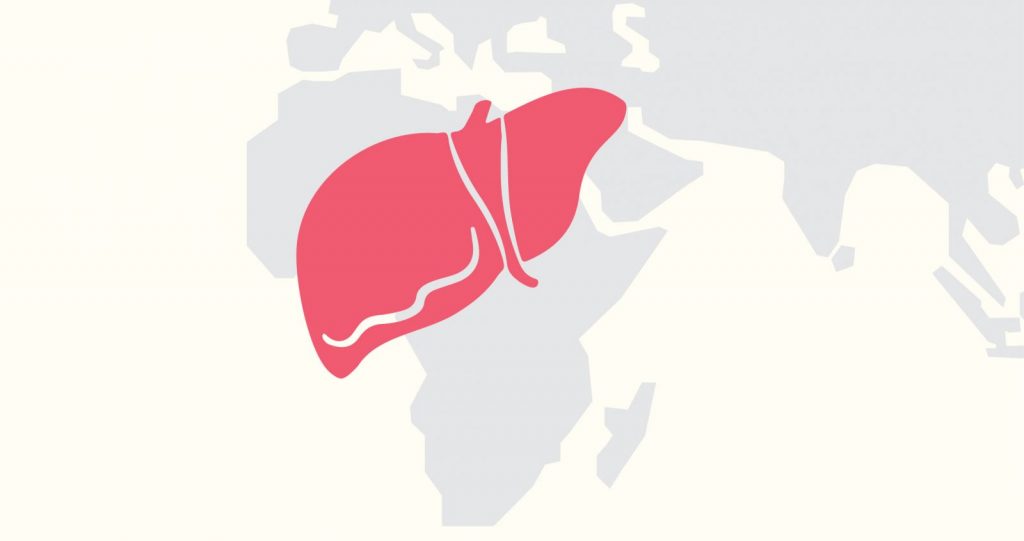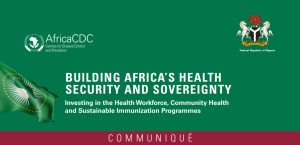Egypt’s Hepatitis Programme, also known as the “100 Million Healthier Lives” campaign has become a benchmark for African countries. The nationwide effort has led the country to become the first in 2024 to achieve Gold-tier certification for progress towards eliminating Hepatitis C.
Viral hepatitis is a major public health threat in Africa, with morbidity and mortality rates comparable to major infectious diseases like HIV, tuberculosis, and malaria. An initial visit and pilot training programme were conducted by Africa CDC in collaboration with the Ministry of Health and Population of Egypt in September 2022, following which the curriculum and scope of the training programme were refined and expanded.
Africa CDC launched its second cohort in August 2023, equipping experts from six African Union member states – Ghana, Chad, South Sudan, Cameroon, Angola and Senegal – with the skills to implement “screen-and-treat” programmes for Hepatitis C. To date, 26-member state experts have been trained.
From 10 – 14 November 2024, Africa CDC hosted its third training cohort in Cairo at the Princess Fatma Academy for lectures, field trips and discussions on the best practices and challenges in implementing the Egyptian viral hepatitis B and C elimination initiatives. There were 31 participants from Algeria, Cameroon, Burundi, Ethiopia, Gambia, Madagascar, Mali, Mozambique, Nigeria, Somalia, and Uganda.
“The training aimed to leverage Egypt’s expertise in viral hepatitis prevention and control to develop evidence-based guidance for implementing effective interventions across the AU member states,” said Mohammed Abdulaziz, Head of the Africa CDC Division of Disease Control and Prevention. “This effort aligns with the principles of South-South cooperation, promoting shared learning and collaboration to advance public health outcomes across the continent, as outlined by the Africa CDC’s Continental viral hepatitis prevention and control programme.”
“We met with Egyptian subject-matter experts from the Ministry of Health and Population and academia to learn from their experiences with viral hepatitis screen-and-treat and surveillance programmes, community engagement, and prevention and control measures, including challenges, lessons learnt, and how the media was involved to help raise awareness about viral hepatitis in Egypt,” said Dr René-Hubert Mendo’o Medjo, Regional focal point for Infectious Diseases Unit at the Central RCC.
The participants conducted field visits to hospitals where sentinel surveillance is conducted, to primary healthcare settings where decentralized testing is provided, and to a pharmaceutical company where generic direct-acting antivirals for HCV are manufactured.
They also had an opportunity to understand ongoing Egyptian initiatives to support African countries with viral hepatitis elimination, including the supply of pharmaceuticals, such as the Egyptian Presidential Initiative.
Medjo said country representatives developed and presented an action plan detailing how they would share the training received and what support they would require from Africa CDC and Egypt’s Ministry of Health and Population.
As part of Africa CDC’s Division of Disease Control and Prevention’s Continental Viral Hepatitis Prevention and Control Programme launched in October 2022 to support all 55 AU Member States in establishing or strengthening their national viral hepatitis programmes, the programme aims to achieve reach the global targets of viral hepatitis elimination by 2030.
To develop a context-specific support strategy for Cameroon’s ministry of health, Africa CDC met with government officials from 17-22 November specifically from the sub-directorate of HIV, TB, Viral Hepatitis and Sexually Transmitted Infections to understand the country’s viral hepatitis burden and identify priority areas for support.
The result was Cameroon submitting an official request for support to conduct a national seroprevalence survey on viral hepatitis among pregnant women using previous HIV sentinel surveillance blood samples, which is planned to begin early January, said Dr Sangwoo Tak, Senior Advisor, Division for Disease Control and Prevention.
“This would be an interesting basis for providing national prevalence data on Hepatitis B and C among pregnant women in Cameroon to inform the implementation of the Triple elimination strategy, set to be launched soon,” said Dr Tak.
Cameroon was selected as one of 11 member states to participate in the third cohort of the joint Africa CDC-Egypt Viral Hepatitis Training Programme, which took take place in early November 2024 to enhance national capacity for viral hepatitis elimination.
Africa CDC has also started the process of Madagascar’s capacity and readiness assessment for viral hepatitis elimination, using a combined desk-based evaluation and field visits. On 29 September 2024, Madagascar’s Ministry of Health team completed a digital baseline questionnaire that provided valuable insights for a baseline. Following this, an in-country mission took place from 20-26 October 2024, to validate the initial findings, engage with additional key stakeholders in the country’s viral hepatitis response, and align the tentative support plan more closely with Madagascar’s needs.
Madagascar’s Director of Epidemiological Surveillance and Response, Dr Manuella Christopher, reported that viral hepatitis is not in the list of priority disease for surveillance and therefore is not included in notification, surveillance and reporting tools. Dr Christopher highlighted the need for more data to support advocacy efforts for increased prioritisation of viral hepatitis as a public health threat in Madagascar. She also outlined potential ways forward for integrating viral hepatitis surveillance into the current disease surveillance system.
Madagascar is divided into 23 regions, with a total of 114 health districts at the national level. The health system is structured into 4 levels: central, intermediate, peripheric and community, with various health facilities including University Teaching Hospitals, Regional Hospitals, District hospitals and Community sites.
Africa CDC Unit Lead of Infectious Disease Unit, Dr. Serge Batcho, emphasised on the current support provided by Africa CDC to complement Madagascar’s Ministry of Health efforts notably: full funding for a seroprevalence survey on Hepatitis B and C which includes the procurement of kits, drugs and training for the health workers on national guidelines to ensure high-quality management of patients.
Dr Serge expressed the importance of the training in Egypt, where Madagascar was part of the cohort of 10 member states selected for 2024. “This training will be crucial for Madagascar to strengthen its strategic guidance for the response for viral hepatitis as well as to continue engagement with the Egypt Government, considering that they are in the process of finalising a Memorandum of Understanding between Egypt and Madagascar on health cooperation,” Dr Serge said.







